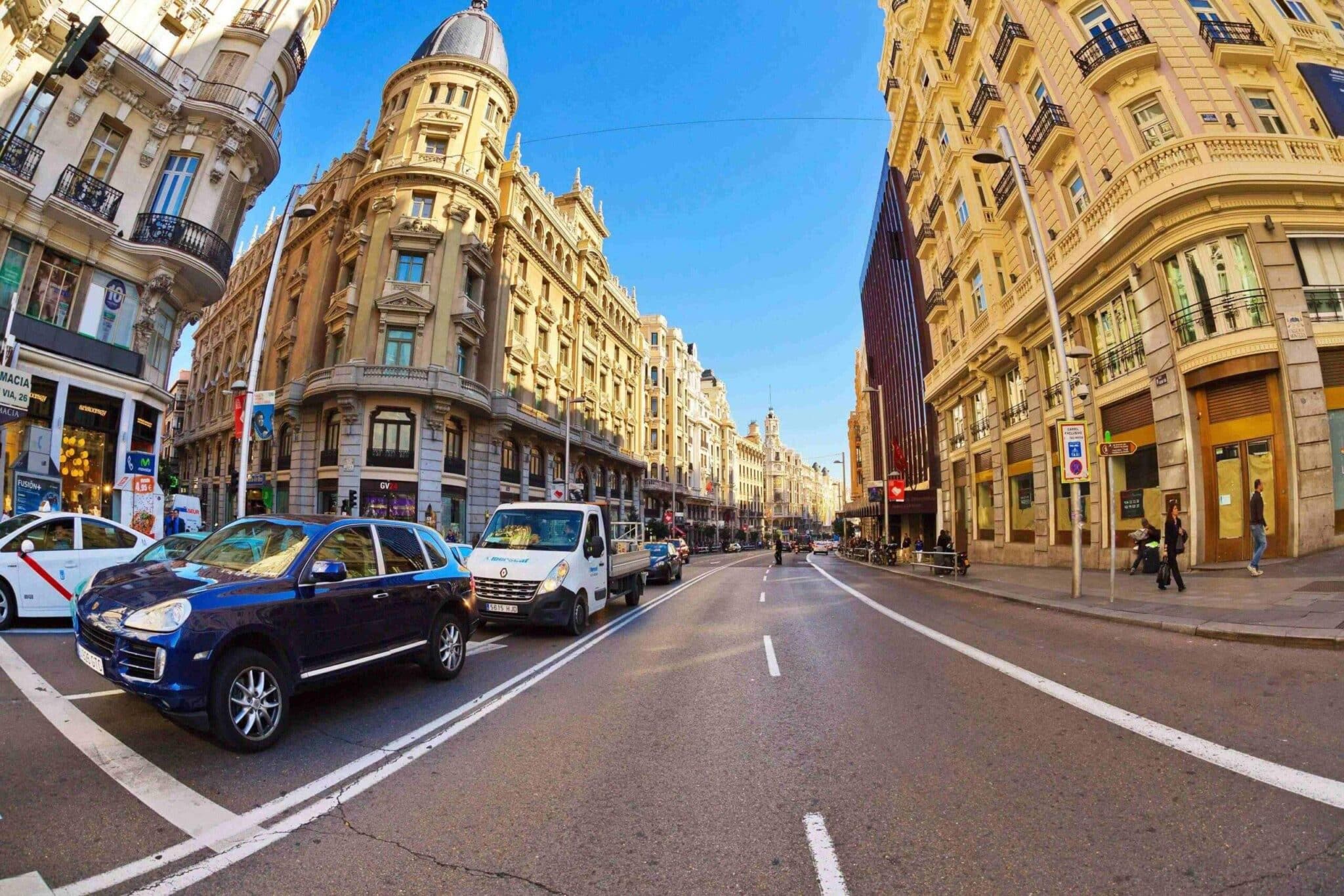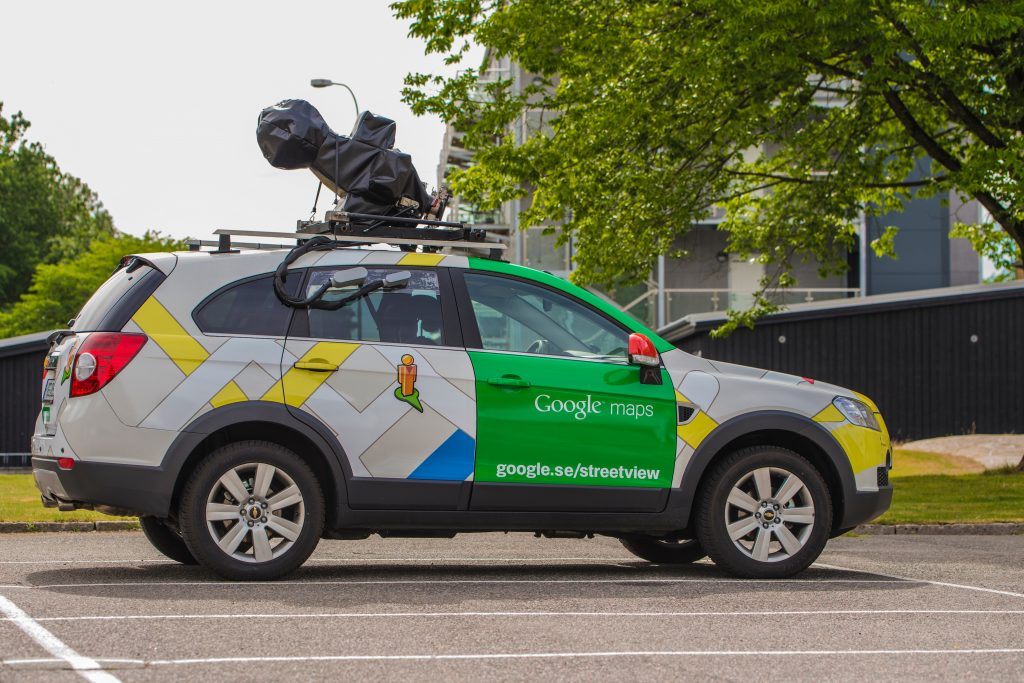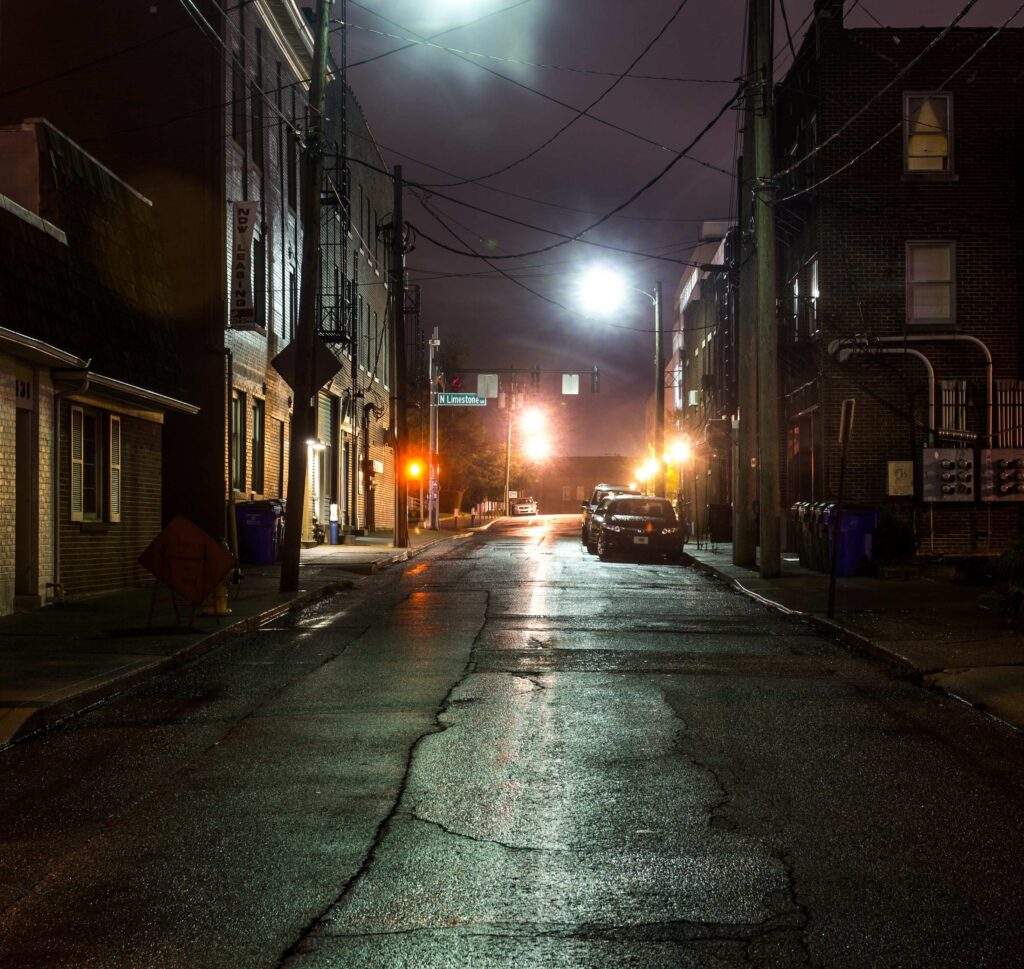Infringement of Privacy Through Google Map's Street View

Google Maps’ Street View, which allows you to see the scenery along roads in countries around the world, is a popular feature that offers various ways to enjoy it. You can use it to preview a place you’re visiting for the first time, enjoy the feeling of traveling by looking at tourist spots, or check the current situation around the school you used to attend.
Street View combines images of the roadside as seen from a car with a road map. The scenery moves along the arrows on the road, and the angle rotates 360 degrees.
With the same operation, you can look at the streets of Paris or San Francisco and enjoy the feeling as if you are actually walking there. When it was first introduced, there must have been many people who lost track of time and became engrossed in it.
What’s the Problem with Google Map’s Street View?
Street View can be fun when you’re exploring tourist spots or foreign cityscapes, but when you look at your own home or its vicinity, you might suddenly feel a sense of unease, wondering, “Is this okay?”
This anxiety seems to stem, in part, from the perspective from which the images are taken. Many of you may have actually seen the Street View car, with its camera mounted on top.
As a result, the viewpoint is considerably higher than that of a person holding a camera. As we’ll see later, it’s at a height of 2.05 meters. If you see someone walking around with a camera held above their head, peering over fences, you’d be shocked and might even consider calling the police.
When I checked my own house, the higher-than-normal viewpoint made me feel uneasy. Fortunately, my nameplate is unreadable, and although you can see into my garden, there is nothing particularly noteworthy there. Thanks to the lace curtains, there is no one who could peek inside my house.
That’s all well and good, but when I look at the house next door, I can see the lady of the house hanging laundry in the garden. A few houses down, there’s a house where the owner runs a landscaping business and has a work van. You can read the part above the windshield that says “XX Landscaping by XX”.
Isn’t Street View infringing on portrait rights or privacy rights?
Responses in Various Countries

Switzerland’s Correspondence
In November 2009, the Swiss data protection authority sued Google, claiming that Street View was not respecting Swiss privacy laws. The lawsuit went all the way to the Supreme Court, which ruled that blurring all human faces and car numbers was an excessive measure, but individuals could request that data they find disturbing be made invisible. The court also indicated that measures should be taken to prevent identification of faces in sensitive areas such as hospitals, schools, and courts, and that images of private property such as gardens should not be published online without consent.
U.S. Correspondence
In December 2010, a privacy lawsuit brought by a U.S. couple against Google for taking pictures of their home after entering their private road ended with a $1 restitution. Google admitted to trespassing and settled the case. The couple’s house was located in a place that could not be photographed unless one entered about 300 meters into the private road, which had a “No Trespassing” sign. The couple claimed trespassing and emotional distress, but all claims other than trespassing were dismissed.
Canada’s Correspondence
In October 2014, a court in Montreal, Canada, ordered Google to pay about 220,000 yen in a lawsuit brought by a woman who was shocked to find that she had been photographed for Street View without her knowledge while sitting on the steps in front of her house. According to reports, the woman was checking her mobile phone emails while sitting on the outdoor stairs in front of her house when a Street View car passed by and took a picture of her house. Because she was leaning forward to look at her mobile phone, her cleavage was clearly visible in the photo. Five months later, the woman was shocked to see herself on Street View. Although her face was blurred, her colleagues at work noticed because it was in front of her house and teased, ending up the woman quitting her job.
Japan’s Correspondence
In Japan, Street View started its service in 12 cities nationwide in August 2008, but by June 2009, 40 municipalities nationwide had submitted requests to the Ministry of Internal Affairs and Communications for legal regulation.
In response, the government and the Ministry of Internal Affairs and Communications held a study group and stated in the “Proposal” in June 2009 and the “First Proposal” in August that the Personal Information Protection Law does not apply to Street View, and that it is difficult to say that there are serious problems in relation to privacy and portrait rights because the images are taken from public roads.
In response to some of the concerns raised in this context, Google decided to take measures such as setting up a contact point to accept reports of malicious secondary use, lowering the camera position by 40 cm to 2.05 m, and blurring car numbers and people’s faces.
While various responses have been made in various countries, there are also lawsuits in Japan where Google has been sued for violating privacy through Street View.
Is Street View an Invasion of Privacy?
A woman residing in Fukuoka City filed a lawsuit for damages against Google in October 2010 (Heisei 22), claiming that her privacy was violated when her laundry hung on the balcony of her second-floor apartment was photographed and made public by Street View. She alleged that this incident exacerbated her obsessive-compulsive disorder and intellectual disability, and forced her to relocate.
The Fukuoka District Court, in its first instance, dismissed the plaintiff’s claim, ruling that her privacy was not violated by Street View. The plaintiff appealed to the Fukuoka High Court, but the appeal was also dismissed with a similar judgment. The plaintiff then petitioned the Supreme Court to accept her appeal, but on March 4, 2014 (Heisei 26), the Supreme Court dismissed the appeal, finalizing the plaintiff’s defeat.
In these trials, the issue was whether there was an infringement of privacy rights, which is related to the so-called “portrait rights”. In lawsuits concerning “portrait rights”, the dividing line for determining illegality has been whether the subject could have predicted being photographed in advance, and whether, based on the sensitivity of the average person, they would feel anxiety or other feelings beyond the tolerable limits in social life.
What was the judgment of the Fukuoka High Court?
The Fukuoka High Court stated, “The ways in which privacy is violated in society are diverse, not only in the form of public acts such as publications, but also as intrusions into the tranquility of private life, such as peeping, eavesdropping, photographing, and interfering with private life.” However, it also stated, “The apartment building is built on the land at the back, which is accessed from the public road through the passage area (the land area used for both the passage and the parking lot). The apartment building does not directly face the public road.”
“The image in question is not specifically targeted at the state of the room or the balcony, but is reflected in the image when the entire surroundings are photographed from the public road. The balcony of the room in question is located at the back from the public road, and the proportion of the balcony image in the entire image is small, and it is not clear what is hanging there. Therefore, it is inevitable to say that the tranquility of private life has not been violated by the taking of this image, based on the standard of an ordinary person.”
Fukuoka High Court Judgment, July 13, 2012 (2012)
Therefore, it was determined that the act of taking photographs did not constitute a tort, and therefore, the act of publication also did not constitute a tort. In addition, the court did not adopt a violation of the Japanese Personal Information Protection Law, and also denied the violation of the duty of consideration for privacy claimed by the plaintiff.
Questions Regarding the Fukuoka High Court Ruling
This lawsuit was one that was expected to be filed by someone eventually. However, now that the decision that there was no invasion of privacy has been confirmed after a dispute up to the Supreme Court, it may become difficult to legally dispute and win a lawsuit regarding Street View in the future.
However, in this case, the court ultimately made a judgment that only a balcony, the contents of which are unclear, is visible in Street View. From the reports and published judgments, it is unclear what specific photos were at issue in this case.
In determining whether there is an invasion of privacy, a judgment is made based on the standard of an “average person”. Unfortunately, in court, it is difficult to acknowledge the claims of people who are particularly sensitive and feel distressed even if only photos that would not be considered an invasion of privacy when judged by the standard of an “average person” are published.
This judgment only denies the establishment of an invasion of privacy in relation to specific photos based on the standard of an “average person”. Therefore, if it is clear what is in the photo and it is underwear, a different conclusion may be reached.
Discomfort and Anxiety Regarding Street View

When asking people about their impressions of Street View, alongside opinions of it being “fun” and “convenient”, there are not a few who respond with “discomfort” and “anxiety”.
About “Discomfort”
The “discomfort” seems to stem from concerns that one’s privacy might be violated. People are legally protected in their right and interest to enjoy the tranquility of their private lives, known as the right to privacy.
Is there no problem with the action of entering residential areas and taking 360° panoramic photos? Google argues that “it’s okay because we’re shooting from public roads”, and the courts, at least from reading the above judgment, have decided that “it cannot immediately be said to be beyond the limit of tolerance”. However, this seems to be a case-by-case issue.
About “Anxiety”
Regarding “anxiety”, there are people who express fears such as “houses that look like they have money are easily identified and targeted by burglars” and “it can be used by stalkers”.
However, everyone knows where the affluent residential areas are, and if you walk a little, a professional burglar can easily identify where the houses that seem to have money and which are easy to break into. Also, stalkers will continue their stalking behavior whether Street View exists or not.
Summary
It appears that there have been no instances to date where Japanese courts have recognized privacy violations in relation to the publication of photos on Google Street View. However, the Supreme Court decision mentioned above made its judgment after examining the specific photos published, stating that “based on the standard of an ordinary person, it cannot be recognized that the peace of private life has been violated by the taking of this image.” Therefore, it seems possible that there could be room to acknowledge the establishment of privacy violations depending on the photos published, such as photos clearly identifiable as underwear, or photos that explicitly reveal an individual’s private life.
Unlike tourist spots and downtown areas, which are not particularly problematic in the responses of various countries, photos of residential areas carry delicate issues in relation to individual privacy. Especially if malicious photos are published on Street View, it seems that there is room to request removal from Google through out-of-court negotiations or legal proceedings.
Category: Internet





















